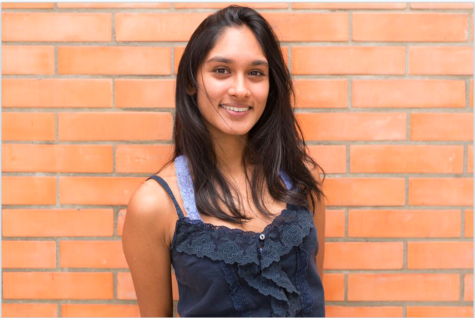Quotas for equal rights?
Former presidents of the United States are strikingly similar: Except the current president, all were middle-aged Caucasian men when they were elected. Despite the United States being a model of gender representation for the rest of the world, there have been no female presidents. It’s true there are more female senators and representatives with each election, yet a woman’s place in the Executive Branch has yet to be realized.
This year in Brazil, presidential candidates Dilma Rousseff and Marina Silva showed how Brazil is slightly further along in political gender representation than their northern counterpart. Both had a serious chance of winning the presidency until Marina fell short, coming in third behind Dilma and Aécio Neves, who now enter the runoffs.
The achievement of Dilma, Brazil’s first female president, do not reflect the broader gains of women in general elections here in Brazil. In this year’s presidential, gubernatorial, and legislative races, the number of female candidates reached 30 percent, the level defined by the quota law. Introduced in the mid-1990s, this law specifies the minimum percentage required for each gender on the party lists in the legislative elections.
Still, Brazil is lagging behind most other Latin American countries in gender balance among elected officials, with only one female candidate participating in a mayoral runoff. Women, on average, hold about 25% of parliamentary seats in Latin America and the Caribbean, while Brazil hovers just above 10%. In the Inter-Parliamentary Union’s ranking of 189 countries by female representation in Congress, as of 2010, Brazil ranks 131st, with women holding 9% of the seats in the country’s Lower House and 16% of seats in the Upper House.
Roughly forty-five other countries have introduced electoral gender quota laws and many political parties have adopted voluntary quotas. One successful global example is Tunisia, which recently implemented a quota for women’s participation in parliamentary elections, following a closed-list proportional representation system. Parties in Tunisia are now required to have equal numbers of women and men on their lists, alternating candidates by gender. Known as the “zippered” list, this effectively guarantees that women will win seats while not defining a percentage of seats for women. Currently, Tunisian women hold 26.7% of seats in Parliament.
Met with controversy here in Brazil, quota laws have taken measures ranging from carving out a set number of seats for female lawmakers, to designating a particular percentage of female candidates. Many criticize the quota law, arguing that while it does motivate women to enter politics, it obligates political parties to invest a small portion of government-allocated funds to recruit and design programs for female candidates. Yet these candidates then go on to receive little financial support, resulting in female candidates often being recruited just to fulfill the quota, rather than run serious campaigns. These candidates are known as “orange candidates,” a phrase whose etymology comes from the prison term “orange” for a target of fraud and coming from Prohibition-era slang describig bootleggers. The term reflects the assumption that a female candidate may have no real influence if she were only included to to fulfill the gender quota.
In March, Marco Aurélio Mello, the president of Brazil’s Superior Electoral Court, publicly acknowledged requested that regulatory bodies be allowed to sue and sanction parties that do not follow the quota law. The Court also put out a television advertisement to encourage women to register as candidates. During the commercial, the narrator’s voice switches from male to female about halfway through, emphasizing how women’s voices should be heard in politics.
Quotas do bring out women’s voices in a political system in which they are otherwise excluded, fast-forwarding the process towards gender equality that normally takes generations. The Brazilian feminist group Instituto Patrícia Galvão estimates that it will take 150 years to achieve gender equity in politics. Many countries, ranging from Norway to Rwanda, have successfully implemented quotas, although those models aren’t necessarily suited for every country. Quotas alone do not solve the issue of female representation, but other factors, such as strong political will and networks of support for female candidates, significantly strengthen the effectiveness of quotas.
Having Dilma and Aécio—one female and one male—in the runoffs is a fitting example of proper gender representation in politics. However, in analyzing the overall situation it is clear that there is still a long way to go before Brazil will have equity in politics.
Sources: theatlantic.com, theguardian.com, foreignpolicy.com

On her third year on the Talon, Faria is serving as co-EIC with Michael Borger (God, help us all). As a senior, Faria discovered the key to success–and...








